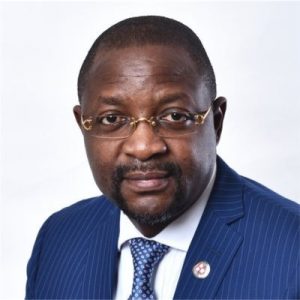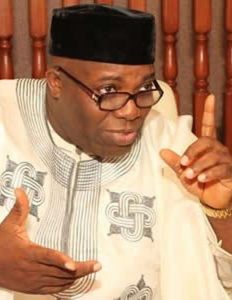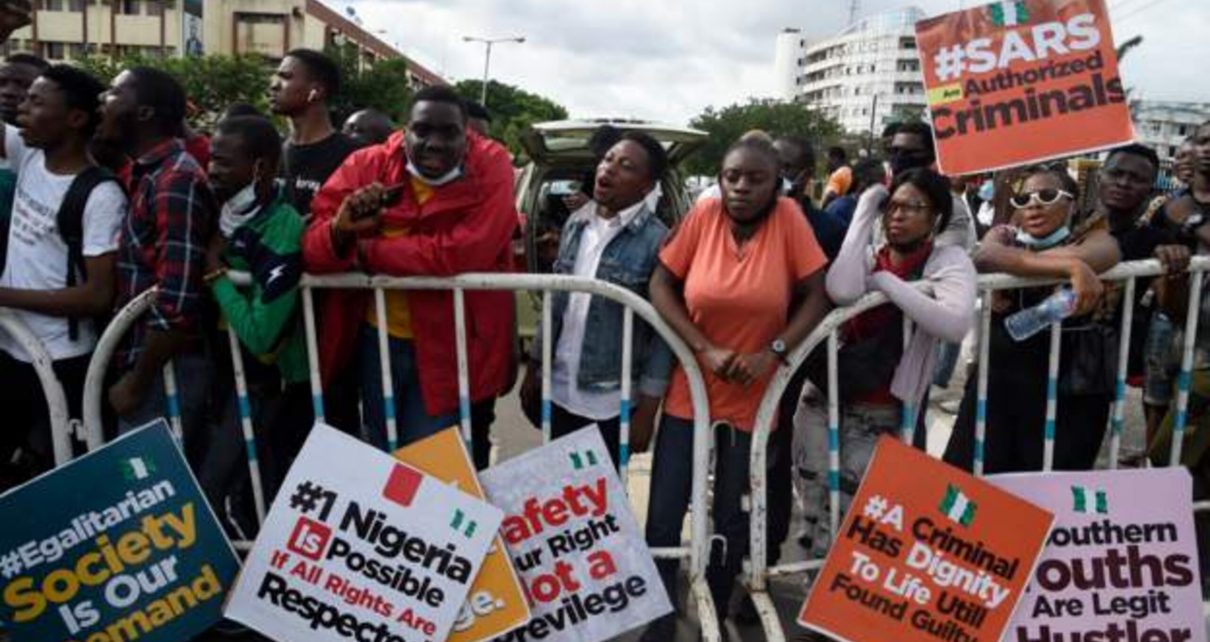Echoes Doyin Okupe, Nigerian politician, in similar call
Nigerians protesting against what they condemn as police brutality must end their daily demonstrations and enter into dialogue with the government on law enforcement reforms, the youth minister said on Monday.
Thousands of Nigerians calling for an end to alleged brutality and for law enforcement reforms have taken to the streets every day for more than a week across the country, posing a major challenge to President Muhammadu Buhari.

Protests have continued despite the dissolution of the Special Anti-Robbery Squad (SARS) police unit on Oct. 11 following accusations of human rights abuses against the unit.
Sunday Dare, Minister of Youth and Sports Development, told Reuters the government had met the demonstrators’ demands, including the creation of an independent body to investigate alleged misconduct and the release of all arrested protesters.
“It is time to move to the next stage, that next stage is dialogue,” said Dare in an interview in the capital, Abuja.
But he acknowledged the mistrust of demonstrators who say the government has promised to reform the police in the past with little discernible effect.
Even as the president and Nigeria’s police chief promised that force would not be used on peaceful protesters, police have opened fire on demonstrators in recent weeks.
At least 10 protesters have been killed, Amnesty International has said.
Dare said the government does not want the situation to “escalate or descend into chaos” as a result of the demonstrations and their impact on other Nigerians’ livelihoods.
“Government has a responsibility when it comes to protecting the lives, the liberties and freedoms of every other Nigerian,” he said.
“If they are stopped from going to feed their families, it also increases the insecurity,” said Dare, adding that the protests were being infiltrated by “hoodlum attacks” and “miscreants”.
The minister said he does not sit on the national security council that would decide whether or not to deploy security forces to quell the protests, but that the use of force “should always be the last option”.
“I don’t see us getting to the last option,” he said.
Earlier, in a message posted on social media, Nigerian politician, Dr. Doyin Okupe, had appealed to the youths to consider coming to the “negotiating table”.

His message read:
“Our dear gallant youths, you have done well and virtually the whole nation is proud of you. You have accomplished much and you must gain maximally from this unprecedented national achievements.
“I want to particularly ask you to note that in all dealings with governments and sovereignties worldwide and throughout all history, including wars, everything ends on the negotiating table. Yes, it all and always ends up on the table.
You must be ready to go to table soonest, lest you lose your momentum and colossal gains and citizens support.”
Observing that the Federal Government had shown much restraint, he warned that the agitations by the youth stood the risk of being repudiated by the masses if their wellbeing starts being affected by the protests.
Dr. Okupe then advised negotiating with the government since it was now receptive.
He advised that in going to the table, two things were needed – a leadership structure and a well articulated compilation of demands which must be comprehensive and addressing all areas where leadership and government have failed over the years.
He advised that the demands should be categorised as immediate, short, and long term.
- with Reuters report


